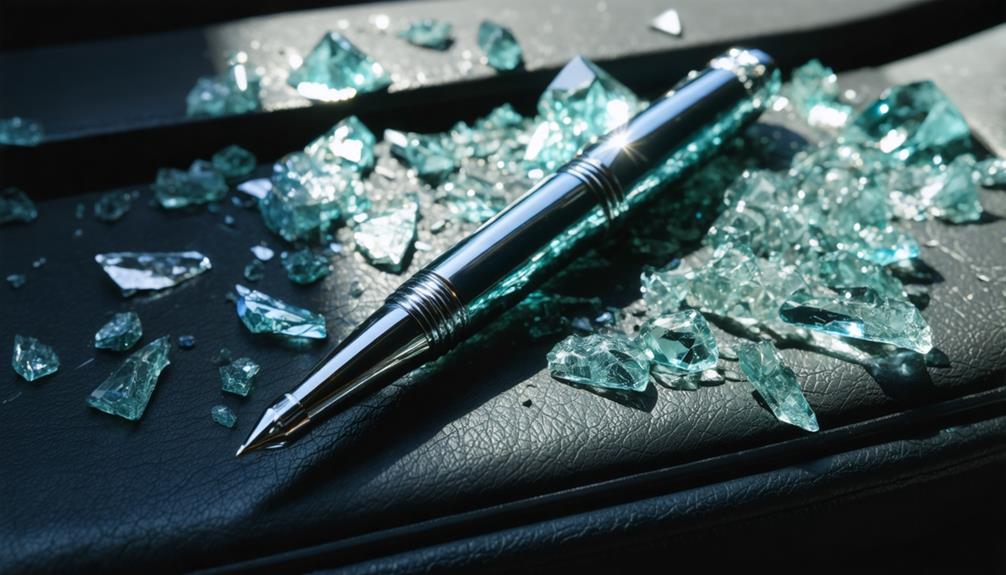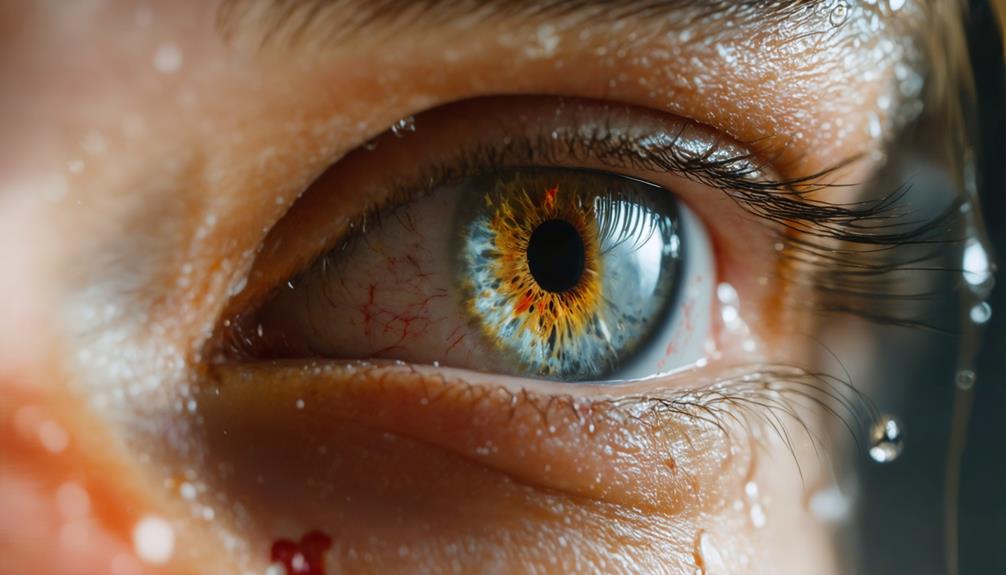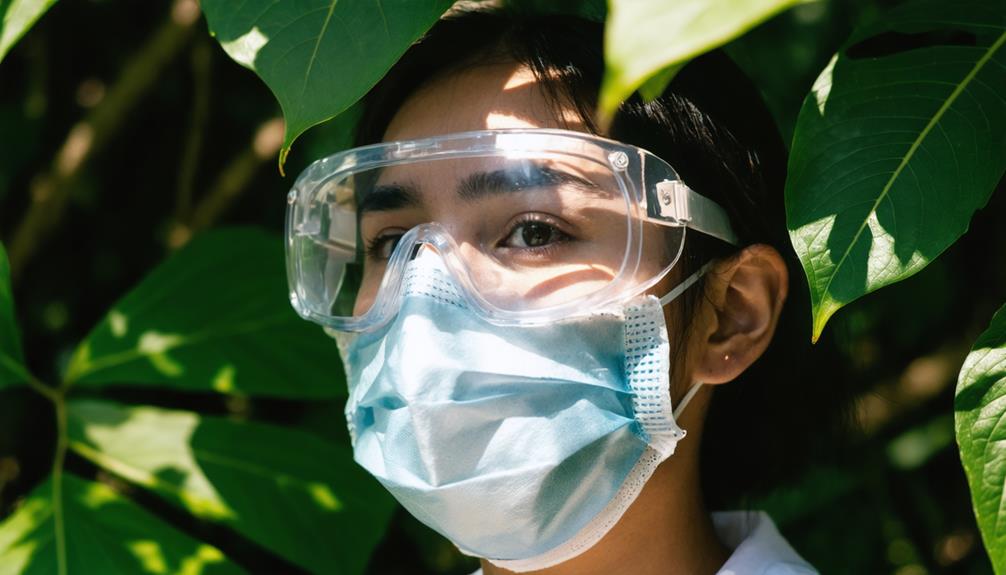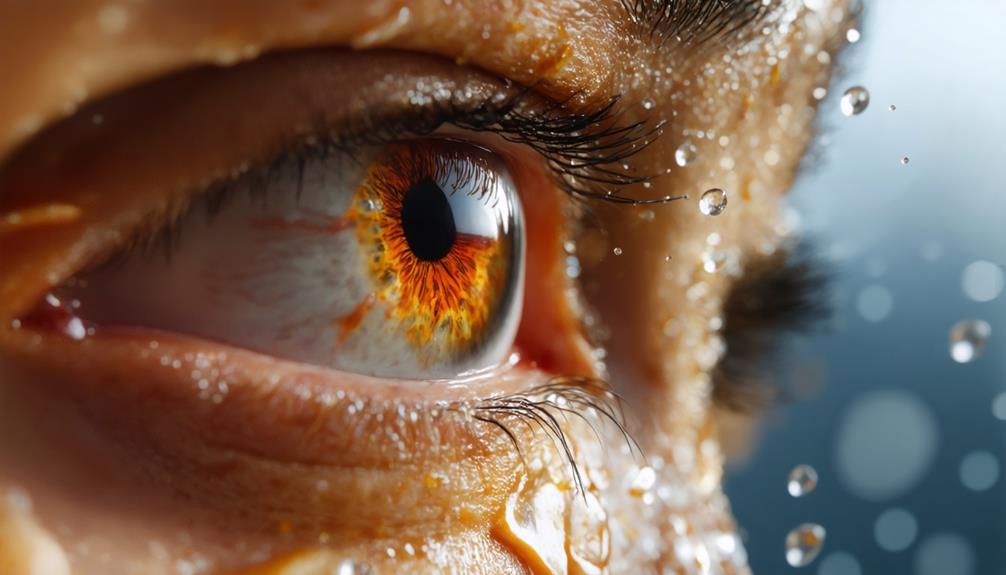
Brainstorm Security Shop

For Orders Over $199

On Any Of Our Products

Details On Refund Page
Pepper spray, a common self-defense tool, can induce severe ocular effects that warrant careful consideration. Upon exposure, the eyes may suffer from acute burning, redness, and excessive tearing, leading to significant discomfort and temporary vision impairment. These reactions can vary depending on factors such as the distance of exposure and the individual’s susceptibility. While immediate rinsing with water is advised to mitigate symptoms, there remains the unsettling possibility of long-term damage if not addressed properly. How can these risks be minimized, and what measures should be taken to ensure safety and effective treatment in the aftermath of exposure?
Upon exposure to pepper spray, the eyes often exhibit immediate and acute reactions. The active ingredient, capsaicin, acts as an intense irritant, triggering a cascade of ocular responses. One of the primary immediate reactions is ocular inflammation, characterized by swelling and redness of the conjunctiva and surrounding tissues. This inflammatory response is the body’s attempt to counteract the irritant and often leads to significant discomfort for the affected individual.
In addition to inflammation, pepper spray exposure can result in temporary vision impairment. The eyes may involuntarily close, a reflexive action aimed at protecting the cornea and other sensitive structures from further damage. Furthermore, excessive tearing and mucus production can blur vision, exacerbating the impairment. These responses, though protective, can make it challenging for individuals to orient themselves or evade further exposure.
The severity of these immediate ocular reactions can vary based on the proximity and concentration of the spray, as well as individual susceptibility. Understanding these initial responses is crucial for medical professionals and first responders when addressing the aftermath of such exposures.
Prompt intervention and appropriate care can mitigate the effects and prevent long-term complications.
Exposure to pepper spray results in a range of symptoms that primarily affect the eyes, respiratory system, and skin. The chemical composition of pepper spray, primarily oleoresin capsicum, is responsible for its potent effects.
Upon contact with the eyes, individuals typically experience immediate burning sensations, redness, and excessive tearing. This is due to the physiological response triggered by the irritant properties of the spray, which activate sensory nerve endings in the eyes.
Furthermore, the inflammatory response can lead to temporary blindness or vision impairment, as the eyes instinctively close in an attempt to shield themselves from the irritant.
The respiratory system is also affected, manifesting as coughing, difficulty breathing, and a burning sensation in the throat. This occurs as the capsaicinoids in the spray irritate the mucous membranes of the respiratory tract.
On the skin, exposed areas may experience a burning sensation, redness, and inflammation. This cutaneous reaction is a direct result of the chemical’s ability to penetrate the lipid membranes of skin cells, provoking an inflammatory response.

While the immediate effects of pepper spray exposure are well-documented, concerns regarding potential long-term damage warrant attention. Prolonged exposure to capsaicin, the active component in pepper spray, can result in chronic irritation of the ocular surface. This persistent inflammation may lead to conditions such as dry eye syndrome, where the tear film becomes disrupted, causing discomfort and potential damage to the corneal surface.
Individuals with pre-existing ocular conditions may be particularly susceptible to exacerbated symptoms and prolonged recovery times.
Moreover, there is a risk of developing visual impairment following repeated exposures or severe initial reactions. Long-term damage could manifest as decreased visual acuity due to corneal scarring or lens opacity.
In some cases, chronic inflammation might contribute to glaucoma, a condition characterized by increased intraocular pressure, which can progressively damage the optic nerve and lead to vision loss if not managed appropriately.
While these outcomes are relatively rare, they underscore the significance of monitoring ocular health following exposure to pepper spray. Comprehensive ophthalmologic evaluations are recommended for individuals experiencing ongoing symptoms, to prevent potential long-term complications and ensure optimal eye health.
Immediate attention to eye care is crucial following pepper spray exposure to mitigate its acute effects. The primary step in first aid is to remove the individual from the contaminated area to prevent further exposure.
Once in a safe environment, rinse the eyes with copious amounts of water. This flushing should continue for at least 15 minutes to ensure thorough removal of the irritant. Saline solution is preferable if available, as it can be more effective in diluting and washing away the chemical agents present in pepper spray.
In the context of an emergency response, it is important to avoid rubbing the eyes, as this can exacerbate irritation and potentially cause additional damage. If vision impairment or severe pain persists after initial rinsing, seeking medical assistance is imperative. Medical professionals may employ specialized treatments, such as the use of ophthalmic anesthetics to provide relief from discomfort.
Furthermore, contact lenses should be removed immediately, as they can trap the irritant against the eye surface. Continuous monitoring of symptoms is essential to ensure no escalation of adverse effects occurs.
These first aid measures are critical in minimizing the immediate impact of pepper spray exposure on ocular health.

In addition to understanding first aid measures, it is important to focus on prevention and safety to reduce the risk of pepper spray exposure. Implementing effective preventive measures can significantly minimize the chances of accidental contact. One primary strategy is to maintain awareness of surroundings and potential threats, particularly in crowded or high-risk areas where pepper spray might be deployed.
Safety equipment plays a crucial role in protection against pepper spray. For individuals who may be at risk, such as law enforcement or security personnel, wearing protective eyewear designed to shield the eyes from irritants can prevent exposure. In addition, masks or face shields can offer comprehensive protection by covering both the eyes and respiratory pathways.
Regular training on handling confrontations and de-escalation techniques can also serve as a preventive measure, reducing the likelihood of situations escalating to the use of pepper spray.
For those who carry pepper spray for personal defense, it is essential to store it safely and ensure it is accessible only to authorized users. Familiarity with the device’s operation can prevent accidental discharge.
Individuals wearing contact lenses may experience heightened contact lens discomfort and increased eye irritation severity upon exposure. The interaction between pepper spray and contact lenses can exacerbate symptoms, posing additional challenges compared to those without corrective lenses.
Research indicates no definitive evidence that eye color sensitivity significantly influences pepper spray reactions. Variability in individual responses is more likely related to factors such as exposure duration and personal susceptibility rather than iris pigmentation differences.
Pepper spray exposure can cause significant eye irritation in pets, leading to discomfort and potential vision impairment. Ensuring pet safety requires immediate eye flushing with water and consulting a veterinarian to prevent long-term adverse effects.
Exposure to pepper spray may not directly cause allergies, but it can exacerbate existing eye allergies. The irritants in pepper spray can lead to eye irritation, resulting in symptoms similar to allergic reactions, such as redness and tearing.
Dietary antioxidants and adequate hydration levels may facilitate recovery by neutralizing oxidative stress and maintaining mucosal health. Nutrient-rich diets potentially improve the healing process, although specific research on these effects remains limited and warrants further investigation.
Exposure to pepper spray results in immediate and intense ocular reactions, including burning sensations, redness, and excessive tearing, potentially leading to temporary vision impairment. The severity of these effects depends on factors such as proximity and individual susceptibility. Prompt rinsing of the eyes with water for at least 15 minutes is crucial to alleviate symptoms and mitigate long-term damage risks, such as chronic irritation or visual impairment. Awareness and adherence to prevention and safety measures are essential in reducing exposure incidents.
